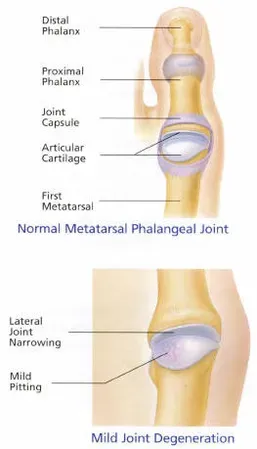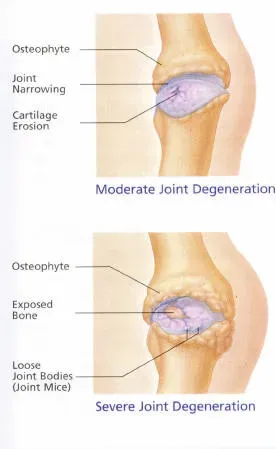What is arthritis?
Arthritis is the inflammation and swelling of the cartilage and lining of the joints, generally accompanied by an accumulation of fluid in the joints.
What causes arthritis?
Arthritis is believed to be hereditary, but it has also been associated with may different illnesses. Arthritis can be induced by:
- joint injuries (especially if they aren’t treated promptly)
- bacterial and viral infections of the joint
- certain drugs
- bowel diseases such as ulcerative colitis and ileitis
Is arthritis in my feet serious?
If your feet hurt, you may start to walk differently, favoring certain joints. This can lead to knee and back problems, which also can be aggravated by arthritis. If foot pain is not relieved, you may avoid standing and walking. As a result, body muscles may weaken – just when you need the strength to support arthritic joints.
Can arthritis be cured?
While most forms of arthritis can’t be cured, they can be controlled. Treatment depends on the type and severity of the condition. Relieving the pain, controlling the inflammation and preserving or restoring joint functions are the goals of any treatment program. A wide variety of drugs can treat arthritis. You also may be recommended to try physical therapy, exercise and/or the use of shoe inserts.
Arthritis of the foot


Common types of arthritis:
Osteoarthritis, is the most common form of arthritis. Osteoarthritis afflicts virtually everyone, to some degree, after age 60. It is often called degenerative arthritis or “joint wear and tear” because it breaks down cartilage and bone. Any condition that puts stress on the joints – obesity, repetitive joint motion and injury – may trigger osteoarthritis. Symptoms include:
- pain and stiffness
- dull, throbbing pain (at night)
- muscle weakness
Rheumatoid arthritis, is a complex system of diseases with may symptoms that can affect the entire body. In its most serious form, it causes painful, badly damaged joints. In rheumatoid arthritis, the immune system turns against the body, instead of protecting it. It usually comes on abruptly. It frequently affects joints in a symmetrical pattern (for example, it may affect the same joints in both feet). Often symptoms will appear and disappear. Women are much more likely than men to develop rheumatoid arthritis. Symptoms include:
- joint inflammation
- swelling
- difficulty moving
- pain
Additional symptoms may include fatigue, morning stiffness, weight loss or slight fever.
Gout, (or gouty arthritis) is caused by a build-up of uric acid crystals in the joints. Uric acid is a waste product that is usually dissolved in the blood and then passed through the kidneys. If you have gout, the uric acid changes into crystals that form deposits in joints and other tissues. Gout usually affects the big toe, knees and wrists. Men are more likely then women to get gout. The use of diuretics can cause gout or make it worse. Eating red meat and rich sauces or drinking alcohol also may be related to gout. Symptoms include:
- severe pain
- swelling in the joints
What can I do to ease my arthritis?
Living comfortably with arthritis involves a balance between activity and rest. Some types of arthritis require activity to alleviate stiffness and pain. Others require rest.
Should I stop exercising?
Arthritis doesn’t have to slow you down. If you enjoy fitness activities or sports, choose a new sport that’s easy on your feet (such as swimming) or participate in an old sport at a reduced activity level. Keep moving and stick to the arthritis treatment plan you were advised to do. It’s your best bet for living comfortably and taking arthritis in stride.
What kind of shoes should I wear?
If you have arthritis, you may need special shoes to walk more comfortably. Dr. Zboinski can discuss this option with you.
